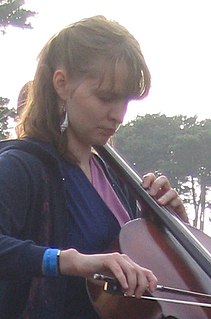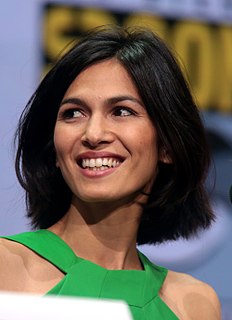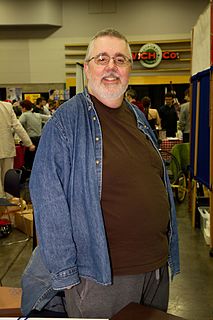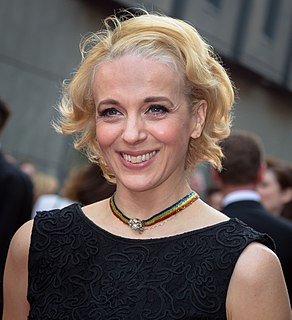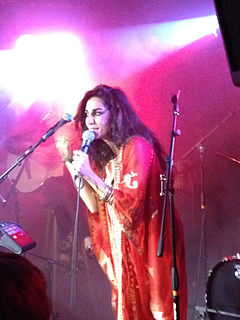A Quote by Hildur Gudnadottir
Joker' is, of course, a character of my generation grew up with, and it's a character you know really well and have strong opinions about. He's been a larger-than-life character in fiction. He's one of these rare characters that have had such strong performances.
Related Quotes
When I'm looking for a strong female character, or a strong character at all, I'm looking for a character that has a purpose in that story, that has an interior life of some sort. They don't have to be physically strong; they don't have to be morally strong or ethically strong, because men and women come in a huge variety of all of those things. Emotionally, ethically - I'm less concerned with that. I just don't want them to be props. That's the only thing that offends me.
There was never a moment where I was intentionally cribbing from another actor. More so, I grew up watching other actors design the character of The Joker to me, and obviously, the part was paying tribute to The Joker, and so I wanted to, you know, perform it to the best of my abilities in a way that it seemed to be paying homage to the character.
I tend to like strong female characters. It just interests me dramatically. A strong male character isn't interesting because it has been done and it's so cliched. A weak male character is interesting: somebody else hasn't done it a hundred times. A strong female character is still interesting to me because it hasn't been done all that much, finding the balance of femininity and strength. [From a 1986 Fangoria interview]
The desire to criticise becomes less and less as the character is developed. It is the mark of a ?ne character never to be critical and to mention but rarely the faults of others. A strong character does not resist evil, but uses their strength in building the good. They know that when the light is made strong, the darkness will disappear of itself.
I'm very sensitive about the fact that there's not a lot of good work for women in cinema that also deals with strong characters. But 'strong character' doesn't mean 'masculine character' - but something that finds the strength in femininity and the beauty in femininity. And something that says you can find femininity in men in some way.
When you are writing, you have to love all your characters. If you're writing something from a minor character's point of view, you really need to stop and say the purpose of this character isn't to be somebody's sidekick or to come in and put the horse in the stable. The purpose of this character is you're getting a little window into that character's life and that character's day. You have to write them as if they're not a minor character, because they do have their own things going on.
Children are 25 percent of the population but 100 percent of the future. If we wish to renew society, we must raise up a generation of children who have strong moral character. And if we wish to do that, we have two responsibilities: first, to model good character in our own lives, and second, to intentionally foster character development in our young.
